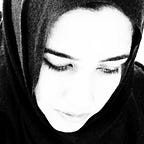And if it is a despot you would dethrone,
see first that his throne erected within you
is destroyed….And if it is a fear you would dispel, the
seat of that fear is in your heart and not in
the hand of the feared.— Khalil Gibran, “On Freedom” https://www.poetryfoundation.org/poems/148573/on-freedom
A lot of design discourse nowadays centers topics such as justice, equity, sustainability, and decolonization. In our practice, we ‘envision’ and ‘imagine’ those futures, but what are we doing in our daily lives to actualize those visions?
Dismantling systems of oppression requires more than diagrams and visions for the future abstracted from on-the-ground reality. It requires moral courage to disrupt and render non-functional those oppressive, unjust, and inherently unsustainable systems that act upon humankind in very real ways. Such systems don’t exist “out there somewhere,” but they are enabled by our participation, as they shape and are embedded in our everyday existence. Disruption means we have to extend ourselves beyond catchy platitudes in our practice, publications, and classrooms, and rather make conscious choices to recognize, divest from, confront, and actively challenge oppressive systems as they are enacted in our daily lives.
As designers who believe in a better world and a better future, we have to be the ones to bring that future vision to life through our actions; we should not merely devise the vision and then wait for others to create that future for us. And we create that world by standing firmly against systems of oppression that are sustained by the sacrifice of human lives.
Any system that punishes people for speaking out against genocide is an oppressive system that ought to be rejected. Indeed, silence in the face of oppression is in itself a grave injustice. None of us wants to live in a world or see a future where evil reigns with power and impunity. So we should not stay silent for fear of backlash or losing people in our network. We should instead fear having to confess to future generations living in a broken world overrun by evil that we said and did nothing when we had the chance.
The power of the people is greater than the people in power.
— Wael Ghonim
A note on the definition of moral courage:
Moral courage is the ability to stand up for and practice that which one considers ethical, moral behavior when faced with a dilemma, even if it means going against countervailing pressure to do otherwise. Those with moral courage resolve to “do the right thing” even if it puts them at personal risk of losing employment, isolation from peers and other negative consequences. One should stand up for what is right even if it means standing alone (Murray, 2010).
Source: https://www.aacnnursing.org/5b-tool-kit/themes/moral-courage
